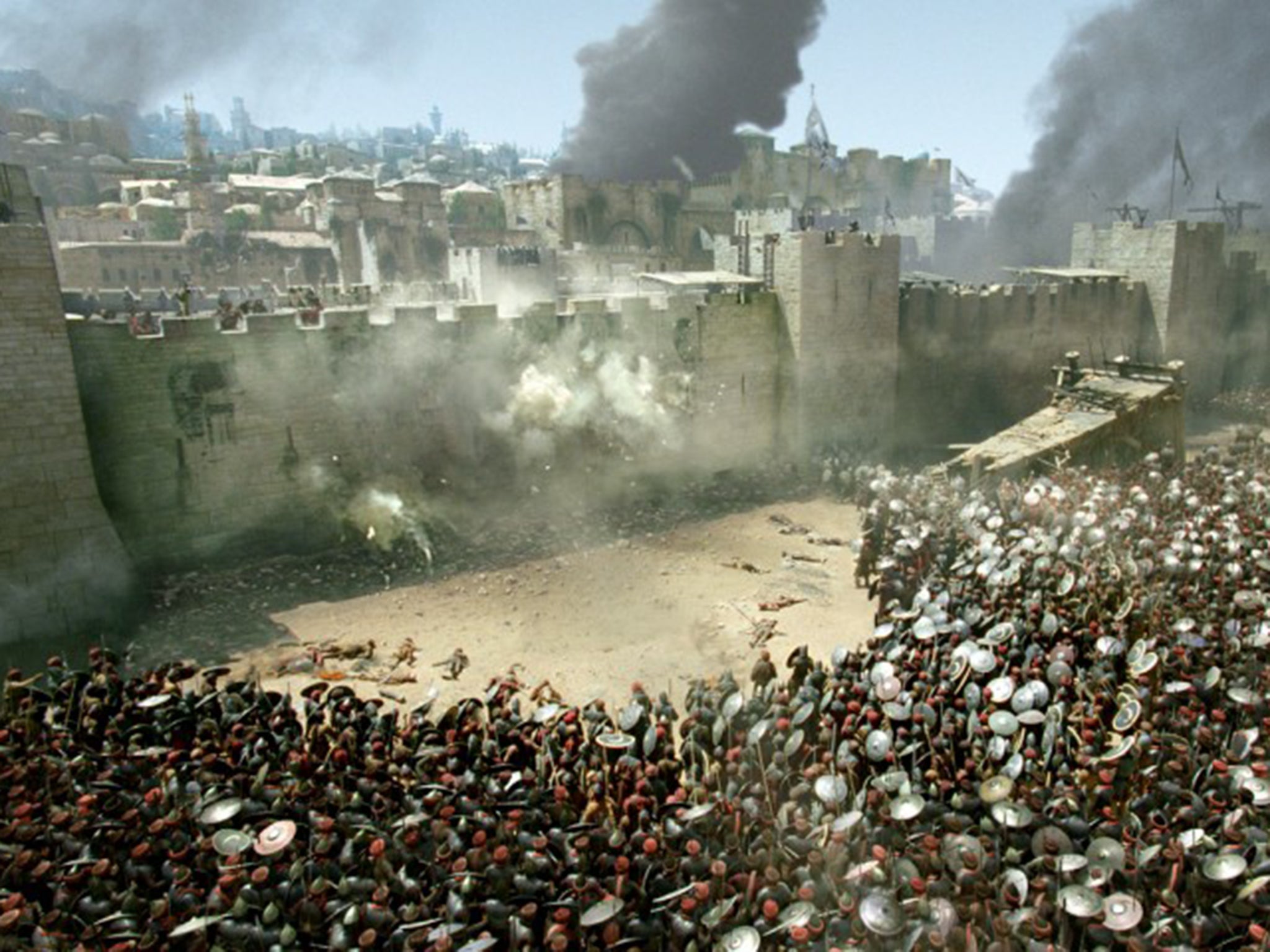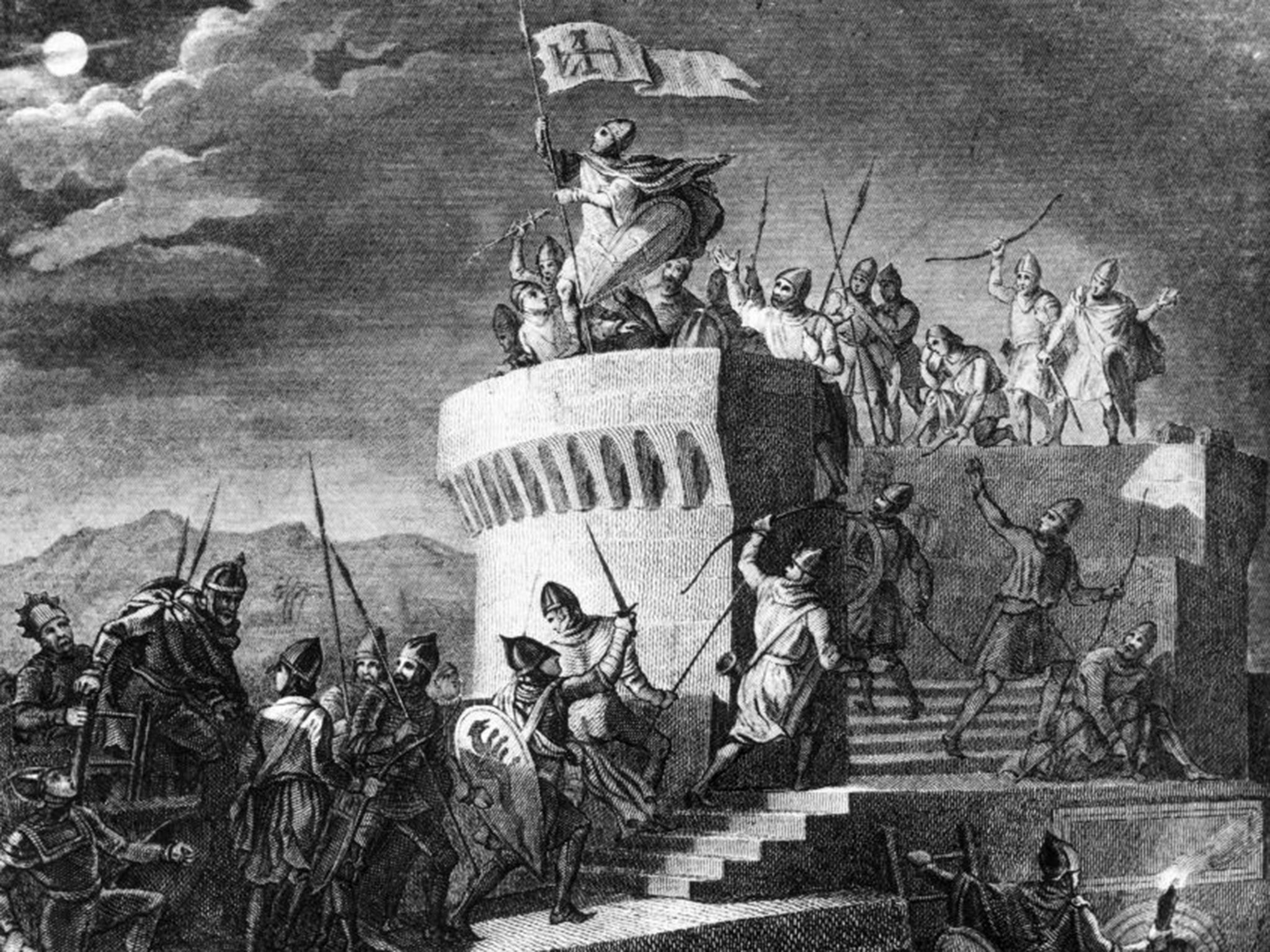Isis are barbarians – but the Caliphate is an ancient Muslim ideal
Healing the divisions of Islam and forming a single state under God's law is a dream that stands at the heart of all Muslim traditions

Many years ago in Cairo I was giving a talk to graduate students and some of their professors at Al Azhar – the pre-eminent centre of Islamic studies and the oldest university in the world. In the discussion period, one of the students said something about “the worldwide mission of Islam”. He was very earnest, and in a typically English way I thought I would lighten the tone: “You seem to be talking about a restoration of the Caliphate!” I intended it as a sort of joke – a reductio ad absurdum of what he had been saying, because at that time I had never heard of anyone who entertained a scheme as visionary as reviving something that the Turks had got rid of early in the 20th century, and which in its Arab version had ceased to exist centuries before that. The young man put his hand on his breast, and said with a solemn intensity: “That is the dearest wish in the hearts of all of us!”.
But now everyone knows that a Caliphate is the declared ambition of Isis in Iraq and Syria. They have even appointed their Caliph. The “dearest wish” in the hearts of those students has just expressed itself in a beheading in France, suicide bombs in Kuwait, and the mass murder of British tourists on a beach in Tunisia. Mr Cameron has depicted sympathy for a Caliphate as part of the narrative of extremism.
Last week the Today programme asked some British Muslims why so many of their community are going to Syria to fight. The usual answers came – they are brainwashed, or groomed, or they have no real understanding of Islam. One old man said simply that he could not imagine why three mothers could abandon their husbands and take their nine children to a war zone. Other explanations have been offered – these young men go for sex, for money, for sadism. There have even been bizarre attempts to blame the British police for radicalising some of them.
The bafflement strikes me as absurd. What is the mystery? When my lame attempt at humour in Al Azhar fell flat I realised that certain ideas had never died. For the Caliphate had existed as long as Islam itself. That Muslims throughout the world form a single community – an Umma – is not the conviction of a few cranks. It is inherent in all Muslim traditions. Even if the divisions within the Arab world make a Caliphate seem impossible to achieve, very many Muslims – perhaps the majority throughout the world – respond to it instinctively as an ideal. A leader who with God’s blessing dispenses law and justice throughout the countries of Islam appeals as profoundly to the Muslim imagination as the kingdom of Christ upon earth or St Augustine’s City of God did to Christians in Europe for at least 1,500 years. In England in the 17th century, Protestant radicals thought that they were achieving just that.
Think what led tens of thousands to join the Crusades to the Holy Land, and prompted popes of the time to promise that all who died for the cause would go straight to heaven as martyrs. The idea was to get back the once Christian territories that had been lost to the Muslims, and especially to recover the Holy Sepulchre. The Crusaders committed atrocities on the way pretty much comparable to the barbarities of Isis – and when finally they captured Jerusalem, they slaughtered 70,000 Muslims, so that they waded knee-deep in blood, and burned the Jews in their synagogue.
As irrational ideas go, I would say the Caliphate is a bit less mad than killing tens of thousands in order to regain the burial place of Christ. To remedy the disunity imposed on the Arab world by such tricks as the Sykes-Picot pact after the First World War – which created Syria and Iraq purely to serve the purposes of the British and French – is not in itself a mad ambition.
Pan-Arab nationalists after the Second World War all went for a secular version of a Caliphate. Gamal Abdel Nasser proclaimed a union of Egypt and Syria, aimed to add Iraq, invaded Yemen, and meddled throughout the Arab world.
So you can understand why young men can be dazzled by the idea of a Caliphate – by something that claims to embody ancient ideals and to avenge recent humiliations. Of course there has been a terrible descent over the years from the exquisitely courteous young men to whom I talked at Al Azhar, through the simple-minded and cruel Taliban, the even more vicious al-Qaeda, to the unspeakable sadism of Isis.

But none of this has to start in cruelty or madness – even though it seems usually to end up that way. And it is no good our professing that we cannot understand any of it – safe in the knowledge that we got rid of this sort of thing in the 17th century, if not in the 12th.
Nostalgia is a normal temptation – from the Greeks’ idea that they have some connection with the Athens of Pericles in the fifth century BC, and that therefore they should have the Elgin Marbles back, to the late Shah of Iran’s hope that he could restore the glories of the ancient Achaemenid empire, to the hopeless attempt by Irish nationalists to revive Gaelic as the language of Ireland. I have talked to Mullahs in Iran who said that they had waited 1,500 years to get their clerical state, and to Sufis in Aleppo who wanted to give Saudi Arabia back to the family of the Prophet.
But the vital thing is that these Isis barbarians actually have a nucleus of a functioning empire – huge swathes of Iraq and Syria, quantities of modern heavy armour abandoned by the Iraqi army, vast amounts of money looted from banks and – until the Americans began bombing them – conquered oil fields.
I would guess that many of the young who go to Syria think of themselves as pioneers building a utopia – even though they end up “learning love of slaughter”.
Isis needs to be destroyed. But Mr Cameron is right in supposing that this utopianism is something that not a few of their co-religionists condone without facing any of the consequences of trying to put it into effect.
John Casey is a fellow of Gonville and Caius College at the University of Cambridge and the author of ‘After Lives: A Guide to Heaven, Hell and Purgatory’
Bookmark popover
Removed from bookmarks